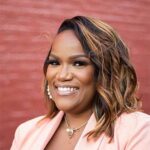
Prescription pill abuse is a considerable concern in the United States, affecting teens as well as adults. In one study, 5% of high school seniors reported misusing prescription drugs over the past year.
Media attention on prescription medication abuse has mostly focused on the misuse of opioids, which are typically prescribed to treat chronic pain. However, other prescription drugs are also being abused.
While your loved one may want to hide their prescription drug abuse from you, there are warning signs that indicate they may need medical care.
Common Signs Of Prescription Pill Abuse
There are general signs and symptoms of pill abuse that you can look for in your loved one, including both physical and behavioral health changes.
Signs and symptoms of prescription abuse may include:
- running out of a prescription days prior to a refill
- missing pills from your prescription
- weight loss or weight gain
- lying
- mood swings
- hostility
- disheveled or ill-looking physical appearance
- neglecting school or work
- sudden changes in friend groups
- signs of addiction to other substances such as alcohol
What Is Prescription Medication Abuse?
Drug use and drug addiction are terms that are commonly applied to the use of illicit drugs. In the past, family members believed that keeping loved ones safe meant keeping them away from the influences of street drugs.
However, the potential for prescription drug abuse among loved ones, including teenagers, is of just as much concern today.
Prescription drug abuse can include several different classes of medications and may occur when a person misuses a prescription, or takes it in a way that is different than what was prescribed.
Misuse can lead to a substance use disorder (SUD) such as opioid use disorder or other drug abuse problems.
The three most commonly abused types of prescription drugs are:
- opioids
- central nervous system (CNS) depressants
- stimulants
Read on to learn more about these classes of drugs and their signs of abuse.
Signs Of Opioid Prescription Abuse
Opioid drugs have received a lot of media attention over the last couple of decades due to the fact that they have been involved in the majority of drug overdose deaths.
Opioid prescription drugs are available in varying degrees of strength and under many different brand names.
These include:
- Tylenol with codeine
- Vicodin (hydrocodone/acetaminophen)
- Norco
- Percocet (oxycodone/acetaminophen)
- OxyContin (oxycodone)
Opioids are most commonly prescribed for severe or moderate pain following surgery or an injury, or for chronic pain. They are highly addictive.
Signs and symptoms of prescription painkiller abuse include:
- confusion
- constricted pupils
- nausea
- diarrhea
- vomiting
- constipation
- slurred speech
- itching
- constant flu-like symptoms
Signs Of Stimulant Addiction
Stimulant prescription drugs are most often prescribed for attention-deficit/hyperactivity disorder (ADHD), and most are amphetamines.
Methamphetamine may also be prescribed for ADHD, but it is intended only for short-term use. It is also sometimes used to treat obesity in people who need help achieving weight loss.
Prescription stimulants include Adderall, Dexedrine, and Ritalin among others.
Signs and symptoms of prescription stimulant abuse include:
- increased alertness
- irregular heartbeat
- high blood pressure
- reduced appetite
- high body temperature
- anxiety
- agitation
- paranoia
- insomnia
Signs Of CNS Depressant Abuse
CNS depressants are a general drug category that includes a few classes of prescription drugs.
These classes of drugs are CNS depressants:
- benzodiazepines (such as Xanax or Valium)
- non-benzodiazepine sleep medications (including sedatives and hypnotics like Ambien)
- barbiturates
CNS depressant prescription drugs are used to treat anxiety disorders or other mental health conditions, or to help restore healthy sleep patterns.
Signs and symptoms of CNS depressant abuse include:
- drowsiness
- confusion
- unsteady walking
- slowed breathing
- memory problems
- dizziness
- poor concentration
- slurred speech
Risk Factors For Prescription Pill Abuse
If you are concerned about pill abuse in a loved one, it may also be helpful to consider specific risk factors.
Risk factors for prescription drug addiction include:
- family history of substance abuse including alcohol abuse
- past or current addictions
- mental health disorders or conditions
- peer pressure to use drugs
- lack of knowledge about prescription drugs and their abuse potential
- availability to prescription drugs (such as easy access to a medicine cabinet where they are kept)
Risk factors may also include alcohol use because alcohol is often taken with prescription drugs to intensify their effect.
Polysubstance abuse is particularly dangerous because side effects from combined substance use may be unknown or may be intensified to the point that they become especially life-threatening.
Dangers Of Prescription Medication Abuse
The biggest danger of prescription medication abuse is overdose. Combined with alcohol, the use of pills can lead to blackouts, and opioids and sedatives can cause respiratory depression and even death.
People who engage in pill abuse also may experience intense, sometimes life-threatening withdrawal symptoms when they stop taking the pills because they aren’t able to access a prescription.
Addiction Treatment For Pill Abuse
Many addiction treatment programs address benzodiazepine, opioid, stimulant, and other prescription drug use along with alcohol addiction and any related mental health conditions.
A treatment center may also be able to provide medical detox services as a first step. Medication-assisted treatment (MAT) is another treatment option for some people facing pill abuse.
Find Addiction Treatment Today
If you or a loved one is facing substance abuse, you can find treatment today. Call DetoxRehabs.net to learn more about how to start your recovery journey.
Article Sources- Raul Torrez New Mexico Attorney General - Warning Signs of Prescription Drug Abuse
https://www.nmag.gov/protect-yourself/warning-signs-of-prescription-drug-abuse/ - National Institute on Drug Abuse - Misuse of Prescription Drugs Research Report
https://nida.nih.gov/publications/research-reports/misuse-prescription-drugs/overview - Mayo Clinic - Prescription drug abuse
https://www.mayoclinic.org/diseases-conditions/prescription-drug-abuse/symptoms-causes/syc-20376813


